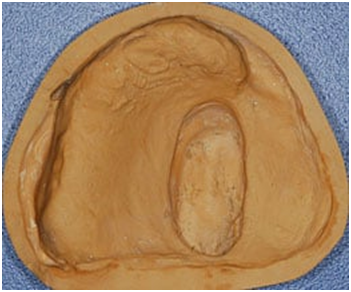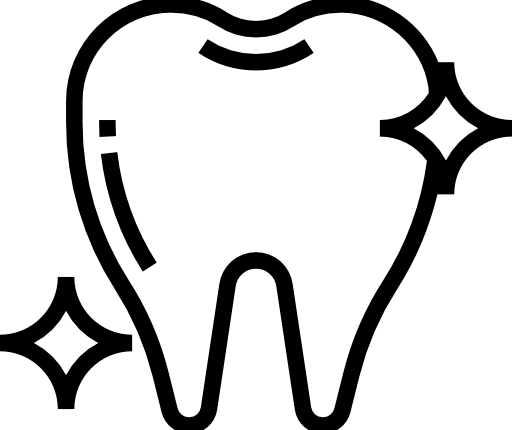Maxillofacial prosthodontics plays a crucial role in addressing congenital disabilities, traumatic injuries, and cancers of the head and neck region. This specialized branch of dentistry focuses on the rehabilitation, management, replacement, and restoration of lost or missing structures and functions due to maxillofacial defects. When surgical reconstruction has reached its limits or when surgery is not a viable option, prosthetic devices are utilized to rebuild facial structures. These prosthetics help restore aesthetics, speech, chewing function, and ultimately, the overall quality of life. Maxillofacial prosthetics requires a multidisciplinary approach, incorporating expertise from prosthodontics, head and neck oncology, plastic surgery, otolaryngology, and other specialized fields.
Benefits of Maxillofacial Prosthetics
Maxillofacial prosthetics can provide significant benefits in improving both the function and appearance of patients with head and neck defects. Some of the key benefits include:
- Restoration of oral functions: By reconstructing damaged or missing areas, maxillofacial prosthetics enable individuals to regain their ability to chew, swallow, and speak normally.
- Correction of congenital defects: Patients born with maxillofacial disorders, including defects in the ears, teeth, gums, or palate (such as cleft lip and palate), can benefit from prostheses to restore oral health and improve functionality.
- Restoration of facial aesthetics: For patients who have suffered severe trauma or were born with facial defects, maxillofacial prosthetics help restore the appearance of the face, improving cosmetic outcomes.
- Improved quality of life: Maxillofacial prosthetics contribute to a better quality of life by enabling normal oral functions, restoring facial aesthetics, and boosting self-esteem.
- Enhanced confidence: Restoring the mouth, jaw, and teeth can improve confidence in your facial appearance, making it easier to engage in social interactions and feel comfortable with your smile.

Types of Maxillofacial Prosthetics
Maxillofacial prosthetics encompasses a wide variety of devices, each designed to address specific issues caused by defects or injuries. Below are some of the most used prosthetic devices:
Obturators
An obturator is a prosthesis designed for the upper jaw to cover defects in the palate. Defects that result from the removal of sinus or oral cancers may create an opening between the mouth, sinus, or nose. This opening can affect speech, eating, and drinking. An obturator effectively seals off the hole, improving speech sounds and preventing food and liquids from passing between these areas.
Key Benefits of Obturators:
- The opening between the mouth and sinus or nose is sealed.
- Improved speech and articulation.
- Food and liquids are prevented from entering unwanted spaces.
Example of a defect in the hard palate
Mandibular Devices
When part of the mandible (lower jaw) is resected, surgical reconstruction may be necessary using grafts (often harvested from the leg) or metal plating. After reconstruction, prostheses may be used to replace lost gums and teeth. This can be achieved using removable prostheses or dental implants to restore both form and function.
Key Benefits of Mandibular Devices:
- Replaced missing gums and teeth.
- Restored normal jaw function and facial appearance.
Speech Prostheses
A speech prosthesis is used when the soft palate is missing or impaired due to trauma, cleft palate, or cancer. A damaged soft palate can cause speech difficulties and allow food or fluid to seep into the nose. A speech prosthesis fills in the missing tissue or lifts the soft palate to enable proper air movement and prevent seepage during eating.
Key Benefits of Speech Prostheses:
- Restored speech function.
- Food and fluid are prevented from entering the nasal cavity.
- Helps patients communicate more effectively.
Other Prosthetic Devices
Beyond obturators, mandibular devices, and speech prostheses, there are other specialized prosthetic devices available. These involve equally important aspects of maxillofacial prosthetics that include providing comfort, guidance, and support throughout the treatment process. For example, patients undergoing radiation therapy for jaw cancer may experience sensitive gum tissues and reduced jaw movement. Dr. Leong can prescribe the use of a specialized prosthetic on top of medications to manage gum soreness during radiation therapy and guide patients through exercises to restore jaw mobility after treatment.
Comprehensive Care for Maxillofacial Prosthetics
Maxillofacial prosthetics are an essential part of prosthodontics, and Dr. Leong is dedicated to ensuring that patients receive the highest level of care. From providing functional prostheses to enhancing facial aesthetics, Dr. Leong works closely with patients to develop tailored treatment plans that improve both the latter’s quality of life and overall well-being.
Contact Us
Maxillofacial prosthetics is a vital field that helps patients restore both function and appearance after traumatic injuries, congenital conditions, or medical treatments like cancer. Whether it's improving speech, aiding in chewing and swallowing, or rebuilding facial aesthetics, these prosthetic devices significantly enhance a patient's quality of life. At
Trailhead Dental, we are committed to providing personalized care and using advanced techniques to ensure that you receive the most effective and comfortable solutions for your unique needs. If you're facing challenges related to maxillofacial defects or require prosthetic care, don’t hesitate to contact us for a consultation.
Visit us at 4350 Wadsworth Blvd, Suite 360, Wheat Ridge, CO 80033, or call us at (720) 242-6803 to schedule an appointment. Let us help you regain the smile and confidence you deserve!

Cosmetic Dentistry

Dental Implants

Crowns & Bridges

Dentures & Partials

Full Mouth Reconstruction

Maxillofacial Prosthetics

TMJ Disorders

Repairs and Relines

Dental Cleanings & Checkups
















